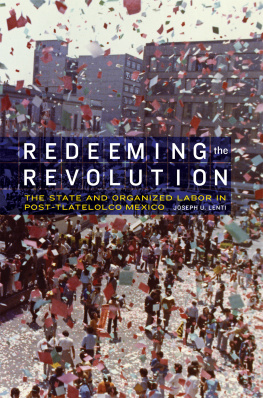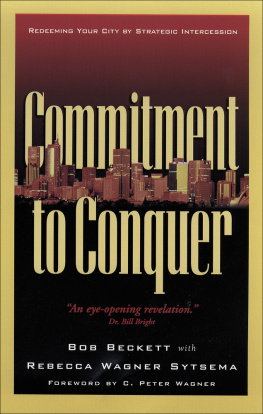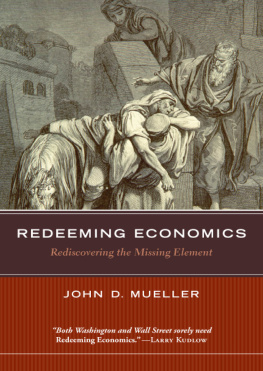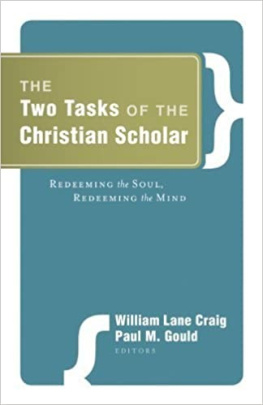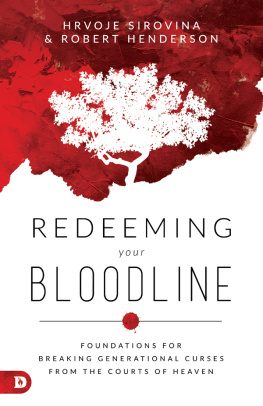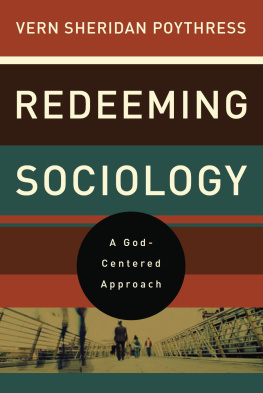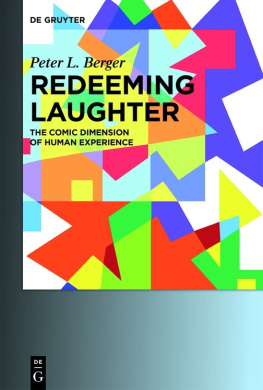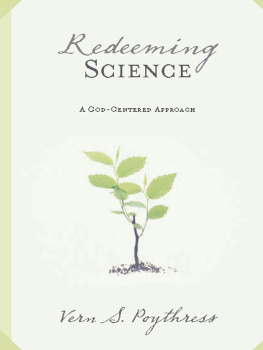Joseph U. Lenti - Redeeming the Revolution
Here you can read online Joseph U. Lenti - Redeeming the Revolution full text of the book (entire story) in english for free. Download pdf and epub, get meaning, cover and reviews about this ebook. year: 2017, publisher: University of Nebraska Press, genre: Politics. Description of the work, (preface) as well as reviews are available. Best literature library LitArk.com created for fans of good reading and offers a wide selection of genres:
Romance novel
Science fiction
Adventure
Detective
Science
History
Home and family
Prose
Art
Politics
Computer
Non-fiction
Religion
Business
Children
Humor
Choose a favorite category and find really read worthwhile books. Enjoy immersion in the world of imagination, feel the emotions of the characters or learn something new for yourself, make an fascinating discovery.
- Book:Redeeming the Revolution
- Author:
- Publisher:University of Nebraska Press
- Genre:
- Year:2017
- Rating:5 / 5
- Favourites:Add to favourites
- Your mark:
- 100
- 1
- 2
- 3
- 4
- 5
Redeeming the Revolution: summary, description and annotation
We offer to read an annotation, description, summary or preface (depends on what the author of the book "Redeeming the Revolution" wrote himself). If you haven't found the necessary information about the book — write in the comments, we will try to find it.
Redeeming the Revolution — read online for free the complete book (whole text) full work
Below is the text of the book, divided by pages. System saving the place of the last page read, allows you to conveniently read the book "Redeeming the Revolution" online for free, without having to search again every time where you left off. Put a bookmark, and you can go to the page where you finished reading at any time.
Font size:
Interval:
Bookmark:
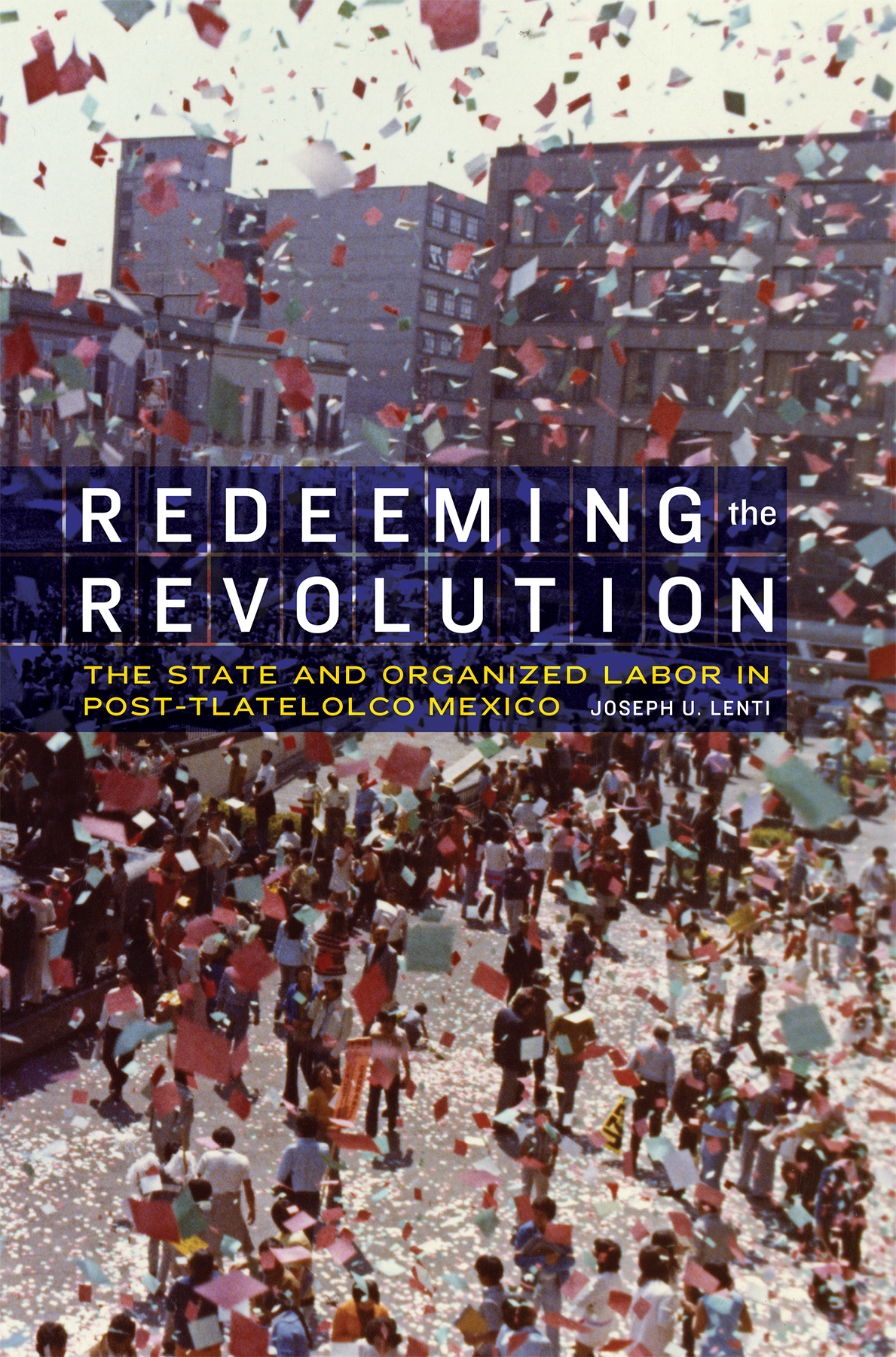
An important new book that every Mexican historian should read. Joseph Lenti has delved deeply into the archives to document the vitality of the Mexican labor movement for much of the twentieth century [as well as] its weaknesses.
John Mason Hart, John and Rebecca Moores Distinguished Professor of History at the University of Houston and author of Empire and Revolution: The Americans in Mexico since the Civil War
Pathbreaking. Joseph Lenti challenges previous interpretations of Mexican authoritarianism and suggests a multiplicity of ways that workers negotiated their relationship with the state and shaped the course of modern Mexican history. Redeeming the Revolution will help students of Mexican politics and labor history rethink prior assumptions.
Gregory S. Crider, professor and chair of the Department of History at Winthrop University
The Mexican Experience
William H. Beezley, series editor
Joseph U. Lenti
University of Nebraska Press | Lincoln and London
2017 by the Board of Regents of the University of Nebraska
Cover designed by University of Nebraska Press; cover image is from the interior.
Portions of chapter 2 previously appeared in Joseph U. Lenti and Amelia M. Kiddle, Co-opting Cardenismo: Luis Echeverra and the Funeral of Lzaro Crdenas, in Populism in Twentieth-Century Mexico: The Presidencies of Lzaro Crdenas and Luis Echeverra, ed. Amelia M. Kiddle and Mara L. O. Muoz (Tucson: University of Arizona Press, 2010), 17489. 2010 by the Arizona Board of Regents. Reprinted with permission of the University of Arizona Press.
Portions of chapter 4 previously appeared in A Revolutionary Regime Must Put the Interests of the Majority First: Class, Collectivism, and Paternalism in Post-Tlatelolco Mexican Tripartite Relations, Latin Americanist 54, no. 4 (Winter 2010): 16382. Reprinted with permission.
All rights reserved
Library of Congress Control Number: 2017940996
The publisher does not have any control over and does not assume any responsibility for author or third-party websites or their content.
To the most honorable workers I know, my mother and father, Helen and Umberto Lenti
In Mexico there are unions but there is no unionism.... And there is no workerism although there are workers.... Fifty years of white unionism, white with the pallid look of cowardice and betrayal, have exhausted our workers of their class-consciousness.... Each trembles with fear just at the thought of dismissal or the exclusionary clause.... On the first of May the day of labor is celebrated.... But when is the day of the laborer?... All of this derives, mainly, from the capitulation of their leaders.... If they had an Olympiad of vanity, corruption, and uselessness, the labor leaders would take all the gold medals.... There is a mystery that puzzles me: they say that the Revolution has gotten down from its horse.... Why, then, are there still so many many charro leaders?
Editorial, El Heraldo (Saltillo, Coahuila), October 7, 1970
Photographs
Tables
It is a clich to say that a scholar accrues many debts while researching and writing, although in this case the adage applies. This book, and more broadly, my education, was completed only through the generosity of droves of people who have supported me during the span of my careers at the University of New Mexico and Eastern Washington University. Originating from a seminar paper written at UNM in 2005, this project grew and saw its development nurtured and often corrected by Linda B. Hall, she who has been a true friend and mentor to me since I began graduate school in 2002. Through her edits and revisions of my work, her advice and ideas, our countless excursions, sporting events, and lunches in the United States and Mexico, and her endless generosity in writing letter after support letter on my behalf, Linda guided me along the academic path and made my journey to the ranks of the professional historian a rich and joyful experience.
My work, as well as my sanity, also benefited from a revision or two offered by Brad Shreve, Erik Loomis, Kathleen McIntyre, Colin Snider, Margarita Ochoa, Nydia Martnez, Brian Stauffer, Will Veeder, Yann Kerevel, Lucy Grinnell, Chris Vigil, Meg Frisbee, Danielle Scott, Frank Salazar, Frank Alvrez, and Brandon Morgan, at UNM , some of whom read parts of the dissertation but more generally were the kind of friends any human being needs to endure. Judy Bieber, Manuel Garca y Griego, Greg Crider, Jrgen Buchenau, Michael Snodgrass, Amelia Kiddle, Mara L. O. Muoz, Annemarie Frohnhoefer, and the late Adrian Bantjesall of whose work I admire greatlyoffered valuable comments on selected chapters. John Hart, to whose fan club I also subscribe, read the complete manuscript and offered important revisions. Johns known hatred of acrobabble (i.e., the overuse of acronyms) and his commitment to making great history read like great literature have inspired my writing since the beginning. Last, folks at the University of Nebraska Press, Bridget Barry, Emily Wendell, Sara Springsteen, and Joy Margheim in particular, have been generous in their support of this project, and its quality is all the better because of it.
Thank-yous are also due to friends in Washington, and in particular to Estban and Elisa Rodrguez, Majid and Sheki Sharifi, Christina and Martn Garca, Joe and Diana Sperry-Navarro, Matt and Priscilla Rabinovitch, Ann Le Bar, Bob and Riva Dean, Larry and Renee Cebula, and Elisha Miranda and Alex Ramrez, who shared their laughter, homes, food, and plenty of wine with me while Ive resided in the great Northwest. The same can be said for each and every member of the Department of History at Eastern Washington Universitya group Ive enjoyed the camaraderie of for the past seven years. Thank you Liping Zhu, Michael Conlin, Bob Dean, Ann Le Bar, Nydia Martnez, John Collins, Larry Cebula, Ed Slack, Laura Hodgman, Kathleen Huttenmaier, Monica Stenzel, Bill Youngs, and Valerie Burnett for being the kinds of colleagues all budding teachers require to grow and thrive. In the same vein I have benefited from the vitality and knowledge of Mayra Villalobos, Michael Edwards, Samantha de Abreu, Toms Shalloe, Nicolle Southwick, Ian Pettus, Logan Camporeale, and Ronald Scheckall former students and themselves budding Latinamericanists. Special mention should also be made of Douglas and the incomparable baristas at The Mason Jar in Cheney, a coffeehouse at which I wrote a significant portion of this book. Last but not least, Vickie Rutledge Shields, the former dean of the College of Social Sciences at EWU, has been indispensable to this project, heaping encouragement and funding on me that has allowed short-term trips to Mexico.
Fellowships Ive won from the National Endowment for the Humanities and the Latin American and Iberian Institute at the University of New Mexico have funded extended stays in Mexico filled with adventures, missteps, and triumphs worthy of their own book-length studies. In nearly every research setting Ive been blessed with assistance from excellent people, and standing out among the scores of archivists, librarians, phototechnicians, and other professionals whove aided this project are Diego Castillo Collins, Alma del Carmen Vsquez Morales, Erika Gutirrez, Mximo de Jess Mndez, and Edgar Paul Ros Rosasall at the Archivo General de la Nacin. I am also grateful to Mara Luisa Izquierdo, who shared her expertise and home with me one summer, and Virginia Morales, a former student who helped me locate images in Mexican institutions in 2015. A special mention must also be made of Linda Arnold, not an employee of the AGN per se, but an institution unto herself who has over the course of decades compiled an electronic catalog that is indispensable for anyone interested in writing the history of Mexico. Although not included formally in this books bibliography, the Gua Arnold was perhaps its most important resource.
Font size:
Interval:
Bookmark:
Similar books «Redeeming the Revolution»
Look at similar books to Redeeming the Revolution. We have selected literature similar in name and meaning in the hope of providing readers with more options to find new, interesting, not yet read works.
Discussion, reviews of the book Redeeming the Revolution and just readers' own opinions. Leave your comments, write what you think about the work, its meaning or the main characters. Specify what exactly you liked and what you didn't like, and why you think so.

